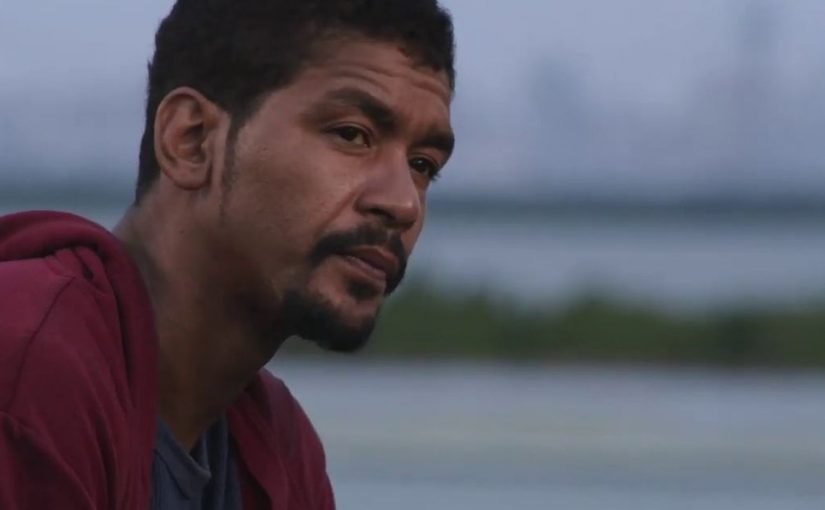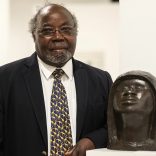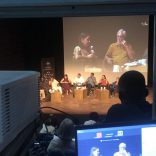Mozambique: Moreira Chonguiça launches new single, featuring Mr Kuka - Watch
Groundbreaking Mozambican feature film now streaming on Netflix – “Redemption”

Movie still: Mahla Filmes
- Netflix has started streaming the Mozambican film, “Resgate” [English title, “Redemption”]. In an interview with DW Africa, director Mickey Fonseca talks about the path to reaching the world’s largest streaming platform: “It’s a dream,” he says.
Mozambican film “Resgate”premiered on Netflix this Wednesday (29-07) under its English title “Redemption”. This is the first production by an African Portuguese-speaking [PALOP] country to be shown on the world’s largest streaming platform, available in 190 countries.
This is the first feature film written and directed by Mozambican Mickey Fonseca, and one of the few independent films produced in the country.
“Redemption” tells the story of a young man who is forced to enter the world of crime and has to deal with the consequences of his choices. It also portrays the recent reality of kidnappings of businesspeople in the country.
The film was shot in Mozambique between 2017 and 2018 and partially edited in Portugal (colour edition) and South Africa (sound edition). Executive production was in the charge of the two founders of Mahla Filmes, Mickey Fonseca and Pipas Forjaz – who also took over photography and editing.

The world premiere took place on July 18, 2019, in Maputo and Matola, where the movie sold out cinemas more than once. The film was also screened in other Mozambican theatres in Nampula, Tete and Chimoio, and in Portugal.
In an interview with DW Africa, the director explains that taking the film to Netflix proved that the “dream was really possible”. Fonseca now hopes that Mozambique will start to value culture and cinema more, so that it can “take the country to the world “.
DW Africa: How did the opportunity to distribute a film on Netflix come about?
Mickey Fonseca (MF): The opportunity to distribute a movie on Netflix came about with a lot of effort. It came about because I believe the world is interconnected. I believe that everyone knows each other. So, through people I know, I was lucky to get to Netflix, to put the movie on their doorstep and to be lucky enough for them to watch it. They watched the movie, and it took them a while to answer me. Then they responded and showed interest again. From then on, we started to negotiate.
ALSO READ: Mozambican filmmakers launch crowdfunding campaign to produce first feature
But it was a process done by us: we don’t have a distributor. We had to follow up, to go after them, to believe that we were able to put the film on Netflix and to achieve our goal, our dream.
DW Africa: And was there any need for extra investment or extra production?
MF: Not on our side. We didn’t have to do any extra production. It was more on their side [Netflix] when they decided they were going to take the film. First the film was going to be shown only in Portuguese with English and French subtitles. But then they saw the film’s potential and said it could have a wider reach. So, they decided to do the English dubbing in Kenya, so they could have a wider reach in Africa and the world. But that was an investment on their side.
DW Africa: Is this international visibility going to change anything in the Mozambican government’s support for culture and cinema?
MF: We hope so. We are working on it. It is not easy to make films here in Mozambique. It is not easy to make films anywhere in the world, but here in Mozambique especially. We have no support at all. The private sector does not help much either. And we worked in this direction, which was to prove that it was possible to take the country to the world, through our culture, through cinema. But I think having the film on Netflix will change the way people think and look at cinema, because it is a way of taking our country and culture abroad. And I think they will start giving a little more value to cinema, I believe, and to culture. That is what we expect.
Já estamos no ar desde a meia-noite!
Quem aqui foi a(o) primeira pessoa a ver “RESGATE” na Netflix? 😜 Conta lá quem é a tua personagem favorita…Primeiro filme PALOP na Netflix! É +258 que fala, né?! 🤩❤️🎬🇲🇿 pic.twitter.com/x4NTzA7E2d
— Resgate (@Filme_resgate) July 29, 2020
DW Africa: “Resgate” portrays a very particular issue in Mozambique: the abduction of entrepreneurs. It also addresses other local issues. Would you like to explain?
MF: The idea for the film started when the kidnappings started here in Mozambique, but then it developed into a story of a young man. The difficulties that a young person has to face and the decisions that he has to take to overcome these difficulties. And sometimes, here [in Mozambique] young people, because they are a little marginalised, because there is a lack of jobs, etc., end up going into crime. But crime often doesn’t pay. I wanted to show this side. I wanted to show the difficulties, of what can lead a young person to enter crime and the consequences that this has in their lives.
“Resgate” is a love story. It is a story of a young man who has a family, but who has to make a decision. And the decision he makes ends up affecting him, his family and the rest of their lives. So, it is a movie which talks about the kidnappings, but that also talks about other social difficulties that we face here in Mozambique.
DW Africa: What other stories do you want to bring to the cinema?
MF: There are several. We are full of stories, I would like to tell so many stories. But we deal more with social stories, stories that have to do with us, that have to do with everyday life and that can, in some way, make people think, reflect a little about some change that has to be made, about a dialogue that we have to have around certain aspects, to be able to improve and to have a better society.












Leave a Reply
Be the First to Comment!
You must be logged in to post a comment.
You must be logged in to post a comment.